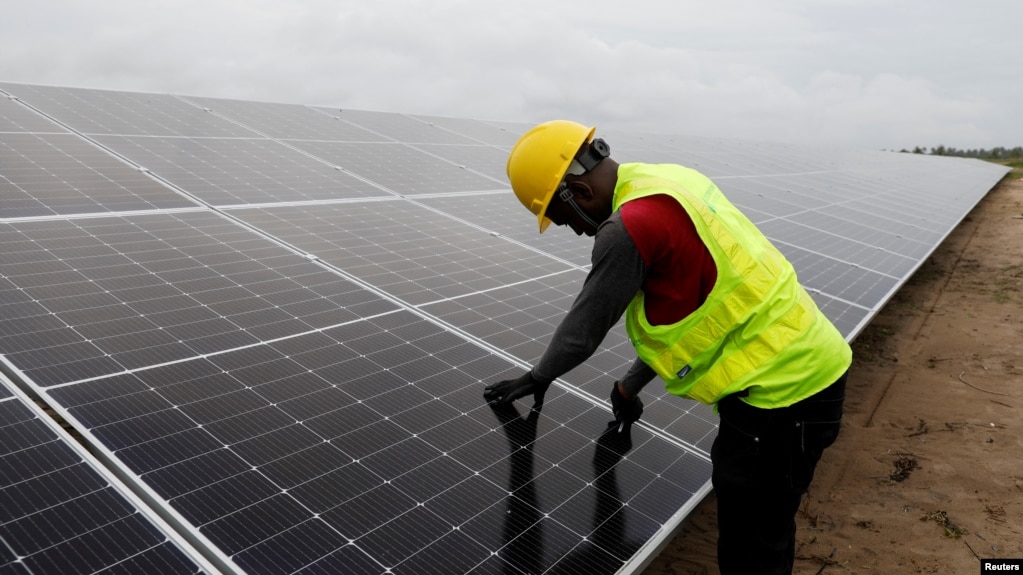

ABUJA, NIGERIA — U.S. special envoy on climate John Kerry has pledged U.S. support to help Nigeria mitigate the effects of climate change, saying Africa’s most populous nation would benefit from a $12 billion fund for climate action.
Kerry began a two-nation West Africa visit Monday in the Nigerian capital, where he met with Nigerian President Muhammadu Buhari. In Abuja on Tuesday, Kerry met with top government officials including ministers of environment, petroleum resources and agriculture, and signed the Clean Energy Demand Initiative.
He said the agreement allows the U.S government to assist Nigeria in developing technologies for cleaner fuel sources, including gas, wind and solar energy.
“Nigeria is a very important, if not one of the most important, countries in terms of the direction of dealing with climate for all of Africa, because Nigeria is a major producer of gas and oil and how Nigeria approaches the climate crisis will send a message to the rest of the continent, will help set the direction of our dealing with the climate crisis,” Kerry said.
But Abba Ali Yarima, co-founder of the Green Panthers Foundation, a nonprofit that advocates for those affected by climate change, said the gesture was long overdue.
Africa is a continent of 55 countries, but its carbon emissions account for no more than 3.8 percent compared to the global north, Yarima said. “We believe there should be reparations by all these developed countries who have emitted more carbon gases than we did here in Africa. Even the $12 billion is quite small.”
Nigerian authorities have been making efforts to address climate change issues.
In November of last year, authorities passed a climate change bill targeting net zero emissions by 2060. Last month, authorities launched an energy transition plan focused on greater use of solar power and doubling natural gas generation.
However, Yarima worries any funds given by the U.S. will be mismanaged or stolen.
“I’m also looking at other aspects of accountability when it comes to Nigeria,” Yarima said. “We’re still battling with corruption and how we’re very good with policy papers but not very good when it comes to implementation. So I’m just scared with this huge amount of money, I suggest there should be a mechanism in place that will help checkmate how this money is going to be spent.”
Kerry, a former U.S. secretary of state, said the world needs to cut carbon emissions by 45 percent by 2030.
He will complete his visit in Senegal, where he’ll be attending the African Ministerial Conference on the Environment (AMCEN).